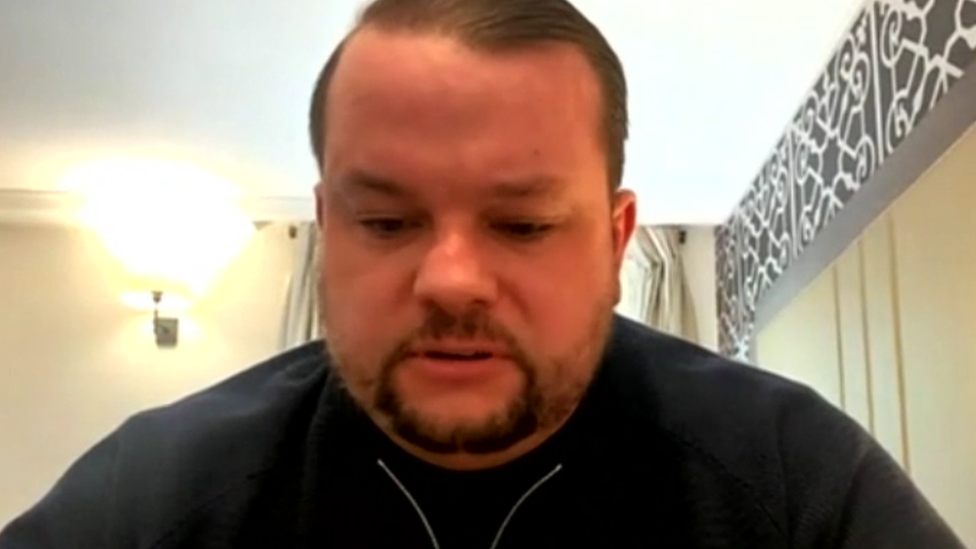Ukraine war: People can welcome refugees into their homes - PM
- Published
Watch: Lena and Raisa Kamolikova face a lengthy process to apply for a UK visa in Poland
Boris Johnson has defended the UK's response to the refugee crisis and said an upcoming scheme will allow Britons to take Ukrainians into their homes.
The PM told Sky News the UK would be "generous" to those fleeing Ukraine, and that details of a second visa scheme would be announced on Monday.
Defending the current visa rules, Mr Johnson said: "People want us to be generous but also careful."
The UK has been criticised for only taking in about 1,000 refugees so far.
Unlike the European Union - which is allowing Ukrainians three-year residency without a visa - the UK has retained controls on entry, saying they are essential for security.
But the government has come under mounting pressure, including from Conservative MPs, to do more to take in refugees fleeing Ukraine.
A scheme allowing individuals and businesses to sponsor a refugee's visa to the UK was originally promised on 1 March, along with the other main route for Ukrainians to get to the UK, which launched last week and allows refugees to join relatives already settled in Britain.
As Russia targets more cities for air strikes and shelling, the United Nations said more than 2.5 million people have now fled Ukraine. More than 1.5 million refugees crossed into Poland, but about 40% of them are thought to have subsequently left for other countries.
Meanwhile, the UK has imposed sanctions on 386 more members of Russia's parliament who voted to recognise the independence of breakaway Ukrainian regions Luhansk and Donetsk, which the Foreign Office said was used as a "pretext" for the invasion of Ukraine.
A total of 400 members of the Duma, the lower house of Russia's parliament, are now subject to sanctions - including asset freezes, a ban on entering the country and a ban on doing business in the UK.
Speaking on Sky News' Beth Rigby Interviews programme, Mr Johnson said "historically and by nature", the British people are "very generous, open and welcoming".
Defending the need to check biometric data, such as fingerprints, he said: "People want us to be generous but also careful," adding security measures were "light touch" and "sensible given the attitudes of the Putin regime towards the UK".
Mr Johnson said this would also be the "best thing for refugees, because they want a scheme that is safe, that is welcoming and that works".
Challenged on why the checks would be needed for children, who are estimated to make up around half of the two million refugees fleeing Russia's invasion of Ukraine, the prime minister said these requirements did not apply to younger people.
But pressed on why just 1,000 family visas had been issued so far, Mr Johnson said the number would "rise very sharply".
He added that on Monday, the Levelling Up, Housing and Communities Secretary Michael Gove would announce details of the second visa scheme, which he said would mean that "if people want to welcome [them] into their own homes, they can do so".
However, the British Red Cross and Ukraine's UK ambassador have been among those urging the government to drop requirements for visas altogether during the war so Ukrainian refugees can travel to the UK more easily.
On Thursday Home Secretary Priti Patel announced that, from Tuesday, Ukrainian refugees with valid passports will be able to apply for visas online without submitting biometric information until they reach the UK.
The change - which Ms Patel said had the approval of the security services - would only affect people applying under the family scheme.
French President Emmanuel Macron said he saw a "glimmer of pragmatism" in the move but added that "we'll see in coming days whether it's enough or needs to go further".

Refugee plans begin to take shape

The government is keen to avoid some of the problems of the scheme designed to help Afghans fleeing after the Taliban took back power, with thousands of people still stuck in hotels without temporary accommodation.
The Home Office will still administer the provision of visas, with the levelling up department taking responsibility for what happens once the refugees are here.
It's not impossible that the offer, expected to be detailed on Monday, could result in many thousands of Ukrainians coming here.
With more than two million people on the move as a result of the war, the need is plain.
Like the family visa scheme, which has already been extended under political pressure, the sponsorship route is not expected to have a limit.
How many Ukrainians end up in the UK may rest therefore, in part, on the willingness of the British people to open their homes.
Read more of Laura's analysis here.

Ministers and officials met on Thursday afternoon to discuss the sponsorship plan, in which refugee groups are expected to be involved in finding suitable host individuals or organisations - such as families or church groups.
It is anticipated that those offering accommodation will be expected to commit to a minimum of six months.
Ukrainians entering through this new route are expected to be allowed to stay for a year initially and will be entitled to work, claim benefits and access public services.
Ahead of the scheme's launch, Krish Kandiah, a government adviser on the care system, said 2,000 people and organisations had signed up to help Ukrainian refugees settle in the UK through his Sanctuary Foundation.
He told BBC Breakfast that he understood people would be able to offer homes to Ukrainians they already knew personally or they could be matched by the government with refugees.

Pop-up visa application centre opening
From Phil Mackie in Arras, France
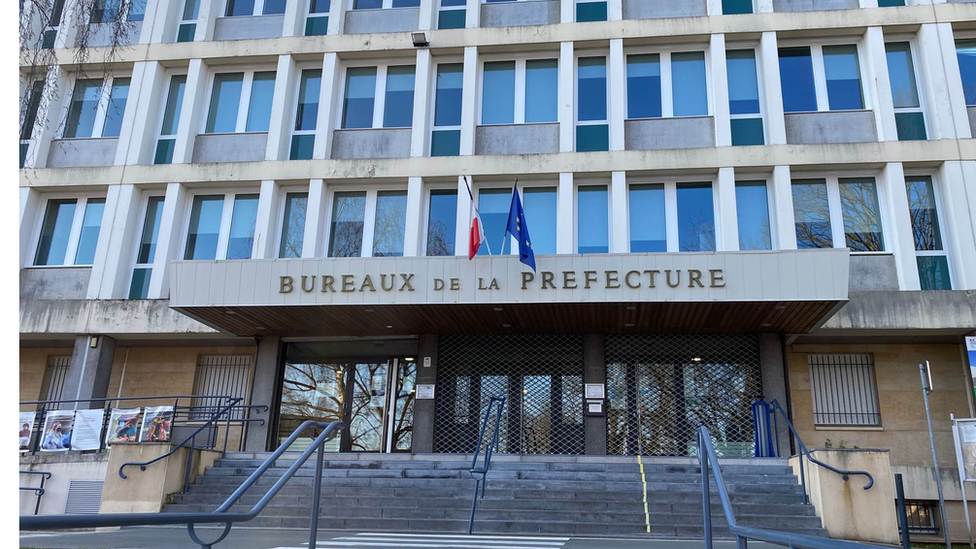
The Préfecture du Pas-de-Calais has announced where the "pop-up" visa processing centre for Ukrainian refugees will be.
There had been reports it would be in Lille, but it's in Arras, in France, which is one hour from Calais, two from Brussels and three from Paris.
The UK government had been promising it would open for several few days now. French authorities say it is finally expected to start operating on Friday.
Many of the hundreds of Ukrainians who are in northern France have spent the past week travelling to the French and Belgian capitals to submit biometric information and documentation.
Many have already been processed and it's thought most will be by next Tuesday, when the process becomes simpler and will move online.

The Foreign Office also confirmed, external on Thursday that all Ukrainian staff working for the British embassy and British Council in Ukraine plus their dependents are able to come to the UK.
However, the speed of the UK's response to taking in Ukrainian refugees has been criticised, with Labour's shadow home secretary Yvette Cooper calling it a "total disgrace".
Yvette Cooper on the Home Office response to Ukrainian refugees: “Our country is better than this”
Ms Cooper asked why it had taken "being hauled into the House of Commons to make basic changes to help vulnerable people who are fleeing from Ukraine?"
Additional reporting by Adam Durbin

War in Ukraine: More coverage
OCCUPIED CITY: 'We are not co-operating'
RUSSIA MOTHERS: 'How do I get my soldier son back?'
EXPLAINED: Why Putin has invaded Ukraine?
IN DEPTH: Full coverage of the conflict

Related topics
- Published10 March 2022
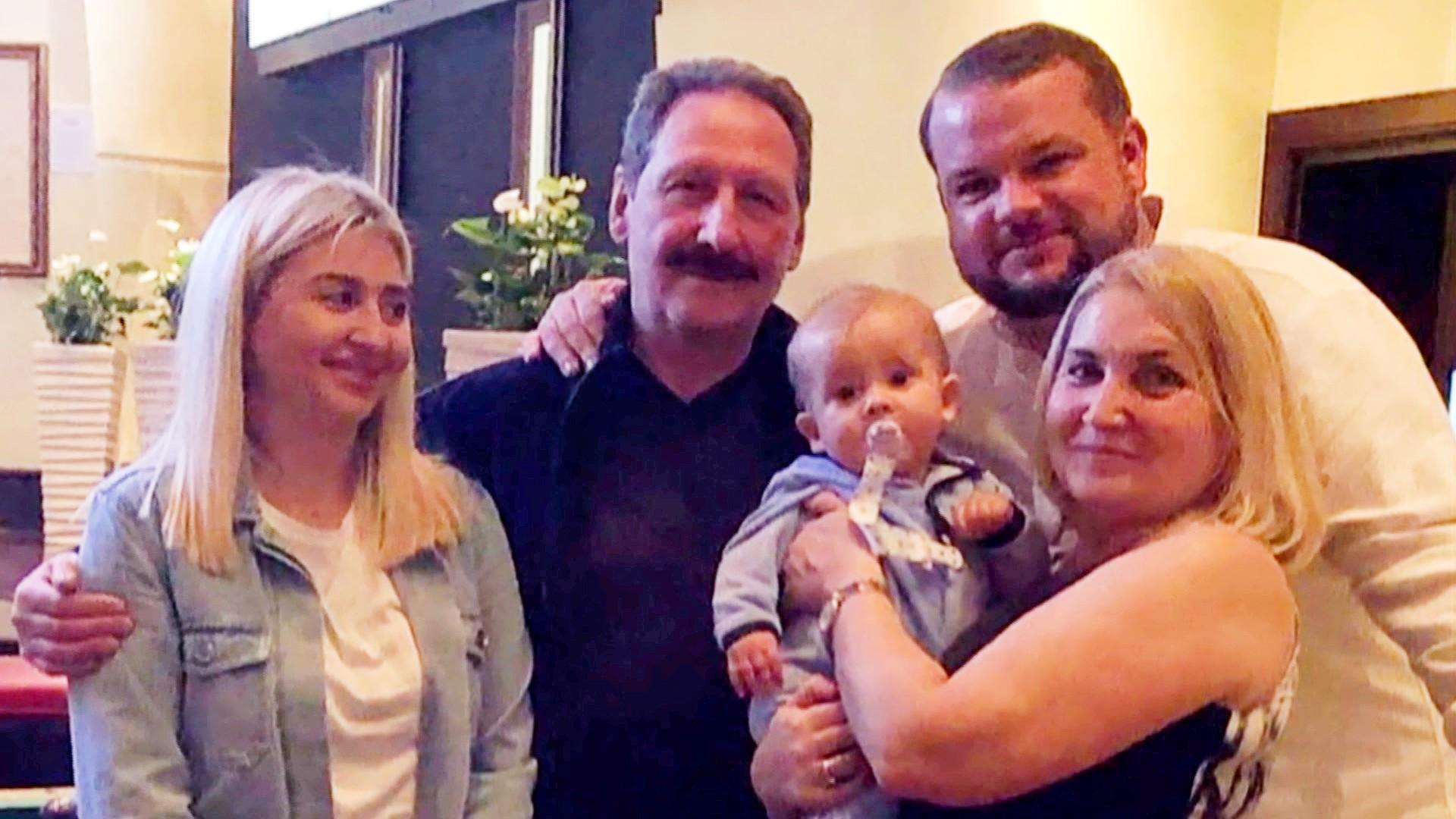
- Published10 March 2022
- Published8 March 2022
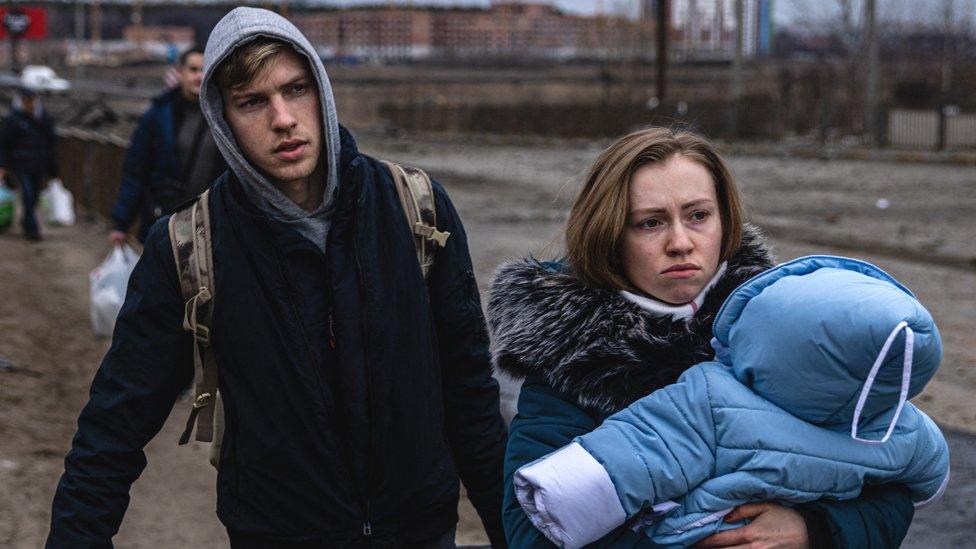
- Published8 March 2022
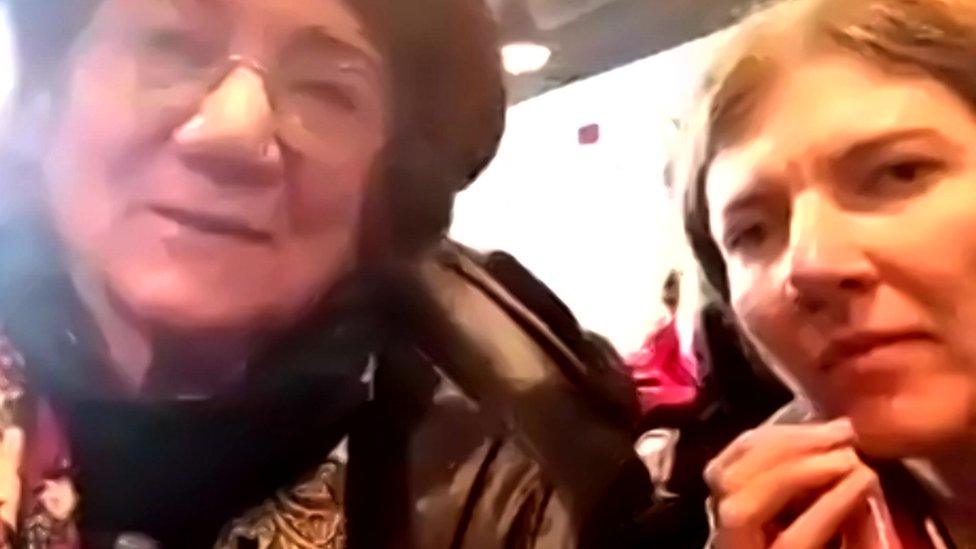
- Published9 March 2022
